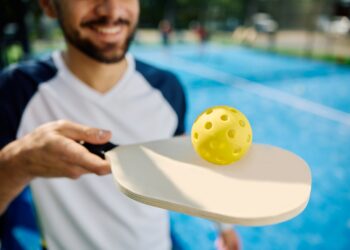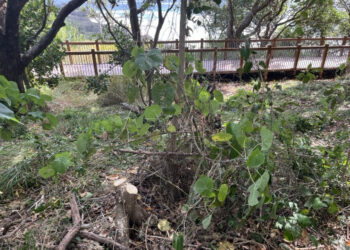Karragarra Island Organics Composting Trial officially opens on April 30, heralding an important trailblazer for more community-based organics recycling schemes.
Redland City Mayor Karen Williams said the collaboration between Council, the University of Queensland’s Centre for Recycling of Organic Waste and Nutrients (CROWN) and three island-based community groups was an important step closer to having a zero organic waste community.
“Karragarra Island produces about 16,000kg of organic food waste a year that goes to landfill,” Cr Williams said.
“It would be fantastic if that amount could be reduced by half.
“With 26 households already signed up, and capacity for a total of about 50 to join the trial, we are well on our way to testing if the community can do that.”
CROWN director Johannes Biala said the Karragarra Island project would be a model and source of information and inspiration for others to follow.
“It has placed Redlands Coast islands ahead of many mainland communities,” Mr Biala said.
“There is no doubt it will continue to thrive well beyond the trial end date in July 2021.”
CROWN has been a key driver in the composting scheme, helping to organise funding through a Goodman Foundation Moreton Bay (Quandamooka) Research Grant, engaging the community and designing the novel, forced-aeration composting system.
“The idea for the solar-powered composting system came from a California-based website,” Mr Biala said.
“Two solar panels are generating power that is stored in lithium batteries.
“This power is then converted to 240V and used to drive a blower, which operates on a time switch.
“Air is supplied via sub-surface pipes to the base of the new compost bays, which is then drawn up into the composted material due to the heat generated by the composting process.”
Division 5 Councillor Mark Edwards urged more island households to sign up to the trial.
“If more organic food waste can be retained for beneficial use within the island communities, it will not only be a great saving to Council but a clever way for islanders to become more self-sufficient as food growers,” Cr Edwards said.
“Taking part in the trial is a simple process, with supplied kitchen caddies and compostable liners available at Karragarra Community Garden.
“People can empty their caddies into 240-litre bins that have been placed at the community garden and near the island jetty.”

Rose Childe, of Running Wild Youth Conservation Culture, said conservation and land management trainees would help process the compost.
“It’s an exciting opportunity for them to use the innovative technology and we’re pleased to be involved in something that engages with the community and ties in with the environmental focus of our organisation,” Ms Childe said.
Shirley Lindsay, of Karragarra Community Garden, said she was hopeful the trial would convert people to separating and composting food waste.
“I think people will want to be part of a great success story,” she said.
“The community garden would use all the compost generated for vegetable crops and fruit trees.
“As a good gardener, you can never have enough compost and mulch.
Jettie Berkhout, of SMBI Permaculture, said the trial aligned with permaculture principles.
“Permaculture is a way of living ethically, caring for the earth and taking care of people and future generations,” Ms Berkhout said.
“SMBI Permaculture believes this is a wonderful beginning in creating a resilient community on Karragarra Island. We hope this program is successful and it will extend soon to the other islands.”








